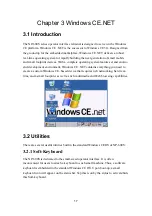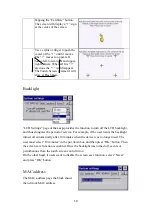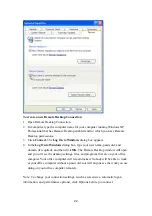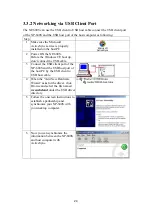
9
2.2.1 Power Requirements
Power
The NP-600S can be powered by DC power only. The specified
voltage range is +21 to 25 Volts DC. This insures compatibility
with most controller DC systems. The power conditioning circuitry
inside the unit is accomplished by a switching power supply. The
peak starting current can be as high as 700mA.
Fusing
Requirements
If the display does not come on within 2 seconds of power up,
remove power. An internal fuse will prevent damage if the polarity
of the DC power is incorrect. Check wiring to insure proper
connections and try to power up again.
Caution
High Voltage
An Internal fuse will prevent damage for over voltage condition
however it isn’t guaranteed.
DC voltage sources should provide proper isolation from main AC
power and similar hazards.
Caution
Emergency
Stop
A Hard-wired EMERGENCY STOP should be fitted in any system
using an NP-600S to comply with ICS Safety Recommendations.
Caution
Supply Voltage
Condition
Do not power the NP-600S and inductive DC loads, or input
circuitry to the controller, with the same power supply. Note: The 24
VDC output from some controllers may not have enough current to
power the NP-600S.
Caution
Wire Routing
Wire lengths should be minimized (Maximum 1600’ (500 m)
shielded, 1000’ (300 m) unshielded).
Wires should be run in pairs with a neutral or common paired with a
hot or signal line.
If wiring is to be exposed to lightning or surges, use appropriate
surge suppression devices.
Keep AC, high energy, and rapidly switching DC wiring separate
from signal wires.
Equip ungrounded DC supplies with a resistor and capacitor in
parallel to earth ground. This provides a path for static and high
frequency dissipation. Typical values to use are 1MOhm and
4700pF.
Connection
To make a connection, strip about 3/8” of insulation off the end of
the wire, turn the connector screw counterclockwise until the gap is
wide open, insert the wire all the way in, and turn the screw
clockwise until it’s tight.
Connect positive DC line to the ‘+24V’ terminal and the DC ground
to the ‘0V‘ terminal.










































